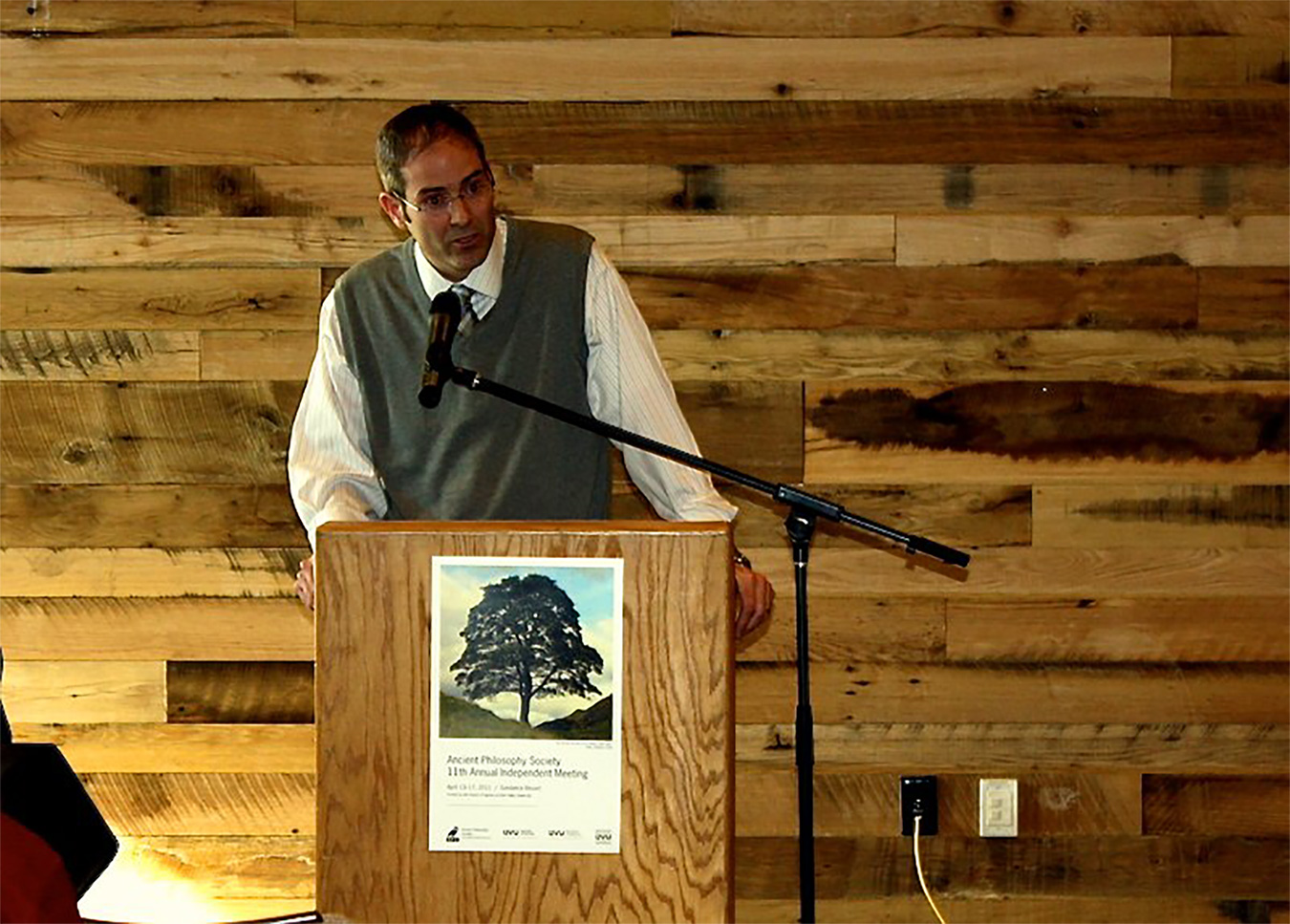In my response to the generous, thoughtful and provocative commentaries of Will McNeill, Drew Hyland and John Lysaker, I attempted to perform the methodological approach I adopted in Aristotle on the Nature of Truth. John Lysaker had asked an important question: how does legomenology welcome interlocutors?
In my response, I tried to model how I hope one committed to the practice of legomenology would enter into dialogue with others.
This meant first listening attentively and with patience, particularly in the face of strong and provocative criticism. Second, in considering a response, I tried to be generous in drawing on the work of those who were generous enough to take the time to read my work so carefully. Finally, I tried to defend the position for which I argued as strongly as possible, recognizing when appropriate, the limits of the things I said and the need to be willing to reconsider my position in the face of new insights.
What you hear here, then, first, is my response to the commentators, and then my responses to questions from those gathered at the 11th annual meeting of the Ancient Philosophy Society.
Christopher Long responds to commentaries on Aristotle on the Nature of Truth
To hear the other comments and my responses, click on the links below:
Here are images from the APS Book Panel:


have you read Andrew Pickering and or Bruno Latour?
https://eric.exeter.ac.uk/repository/bitstream/handle/10036/29882/newontols1006.pdf?sequence=1
https://eric.exeter.ac.uk/repository/bitstream/handle/10036/81575/lesT-240609.pdf?sequence=1
http://www.bruno-latour.fr/
Thanks, Dirk, for these links. I have not read much Pickering, but Latour factors into chapter one at a decisive moment. In particular, I refer to him when I speak about objectivity on page 19n49.
thanks for the tip, I’ll go back and check it out, not sure if it helps your case when you anthropomorphize things/objects (make us matter to them), seems to me that the fact that we evolved out of and into the world would explain how we are, to the degree that we are, attuned/available to various forces/frequencies. To get back to Cl.Colebrook I think that there is an aspect of deleuzian creation/creativity/event-uality in our encounters in/of the world that is not a heidegerrian letting-be and so this isn’t just a matter of emphasizing difference or likeness but really a different anthropology( if not ontology).
have you seen: http://ndpr.nd.edu/review.cfm?id=5361
http://re-press.org/books/prince-of-networks-bruno-latour-and-metaphysics/
http://donewithlife.mi2.hr/audio
Listening is a process of patience as the human brain works about four times as fast as the mouth, and to listen effectively requires considerable self-control. There are many techniques for developing and maintaining the self-discipline needed for attentive listening.
http://mq.academia.edu/JohnSutton/Papers/304365/Exograms_and_interdisciplinarity_history_the_extended_mind_and_the_civilizing_process